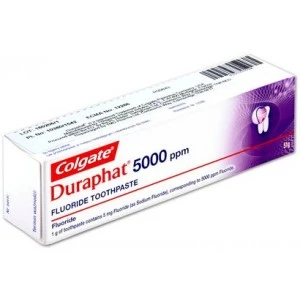How to Remove Tooth Decay Yourself
Tooth decay, or cavities, can cause pain, discolouration, and other dental issues if not treated right away. Fortunately, there are some steps you can take at home to help remove tooth decay and alleviate symptoms.
What Causes Tooth Decay
Dental cavities, commonly referred to as tooth decay, are one of the most prevalent chronic diseases among adults worldwide. Tooth decay is caused by bacterial infections that can damage the enamel on the tooth surface, resulting in cavities.
Tooth decay occurs when food and drinks containing carbohydrates such as sugars and starches (e.g. soft drinks, cakes, sweets, biscuits and fruit juices) are left on the teeth for long periods of time.
Bacteria in the mouth combine with saliva to form a sticky film on the teeth's surface, known as plaque. Plaque then turns into acid, which attacks the teeth, causing tooth decay.
Other factors increasing the risk of tooth decay:
- Poor oral hygiene
- Lifestyle choices such as smoking and not brushing teeth regularly
- Certain medicines
- Dry mouth
- Certain medical conditions
- Excessive alcohol consumption
It is important to take preventive measures to help protect your teeth from tooth decay. These measures include regular visits to the dentist, brushing with fluoride toothpaste twice a day, using floss or interdental brushes, using mouthwash, and avoiding sugary or acidic drinks and foods.
If you suspect you may have tooth decay, it is essential to consult your dentist. Your dentist can diagnose the problem, provide appropriate treatment and advise on preventive measures to help keep your teeth healthy.
Practical Tips for Preventing Tooth Decay Yourself
Here are a few simple tips to help you remove tooth decay yourself:
- Keep Your Teeth Clean – Brush your teeth twice a day and floss regularly to help keep food particles and bacteria from accumulating on your teeth. This includes brushing your tongue to remove bacteria and plaque.
- Rinse with a Fluoride-based Mouthwash – Fluoride is a naturally occurring mineral that helps strengthen tooth enamel and reduce the risk of cavities. Rinse twice a day with a fluoride-based mouthwash to help remove plaque, bacteria, and food particles from between your teeth.
- Use a Fluoride Toothpaste – Using a fluoride-based toothpaste helps strengthen enamel and reduces the risk of tooth decay.
- Regularly Visit the Dentist – Schedule regular checkups and professional cleanings at the dentist to help prevent cavities.
- Look for Natural Remedies – There are several natural remedies to help reduce tooth decay, such as brushing with baking soda and massaging your gums with clove oil. Consult with your dentist before attempting these remedies to ensure they are a safe and effective way to remove tooth decay.
- Avoid Sugary Foods and Drinks – Sugary foods and drinks are the primary sources of tooth decay, so avoiding them can help reduce your risk.
- Reduce Your Stress – Stress can lead to increased acid production in the mouth. Try practising stress-reducing techniques like mindfulness and exercise to reduce the risk of tooth decay.
Visiting your dentist: If you have tooth decay, the first and most important step is to see a qualified dental professional. While it’s possible to address some of the symptoms at home to properly treat the decay and prevent it from spreading and causing further damage, a dental professional is needed for a proper examination and treatment.
Colgate Duraphat Toothpaste
- Fights tooth decay
- Protects enamel
- Available from a UK-registered pharmacy
Foods to Help Fight Tooth Decay
- Eat generous amounts of fresh fruits and vegetables for their fibrous texture, which can help naturally clean plaque from teeth.
- Limit your sugar intake and avoid acidic beverages, such as soda and juice. Sugar and acid can worsen tooth decay, so it's best to reduce their consumption.
- Eat more foods that contain calcium and Vitamin D, such as dairy products, salmon, and broccoli.
- Avoid starchy foods, such as white bread, chips and cookies, as they can stick to teeth and cause further problems with plaque and decay.
- Consume whole grains and nuts, which contain minerals and help promote healthy teeth.
- Enjoy foods high in probiotics, such as yoghurt and fermented vegetables, which can help ward off tooth decay.
- Drink water throughout the day, especially after eating, to help flush out bacteria and food particles.
Additional Resources
Authored & Reviewed By

Dr Giuseppe Aragona
DoctorPublished on: 16/01/2023 Reviewed on: 05/06/2025
© 2013 - 2026 Al Muhsineen Limited. All Rights Reserved. Registered Pharmacy: 34 Halliwell Road, Bolton BL1 8RL. Registered Office: 254 First Floor, Shearbrow, Blackburn, England, BB1 8DS






